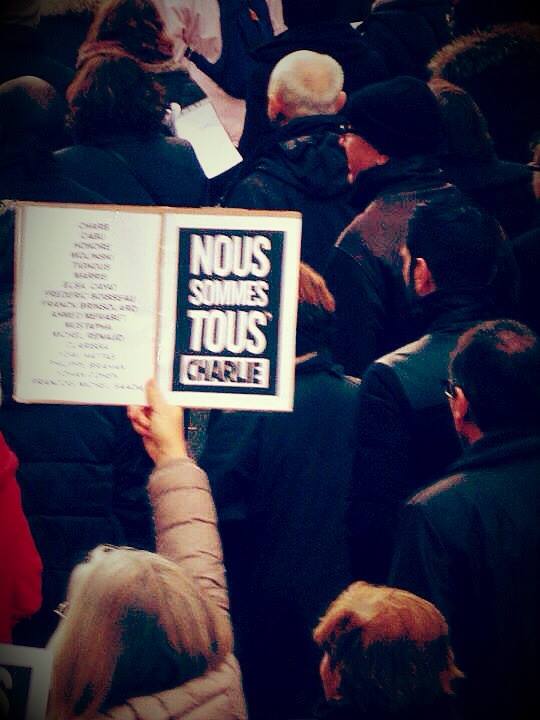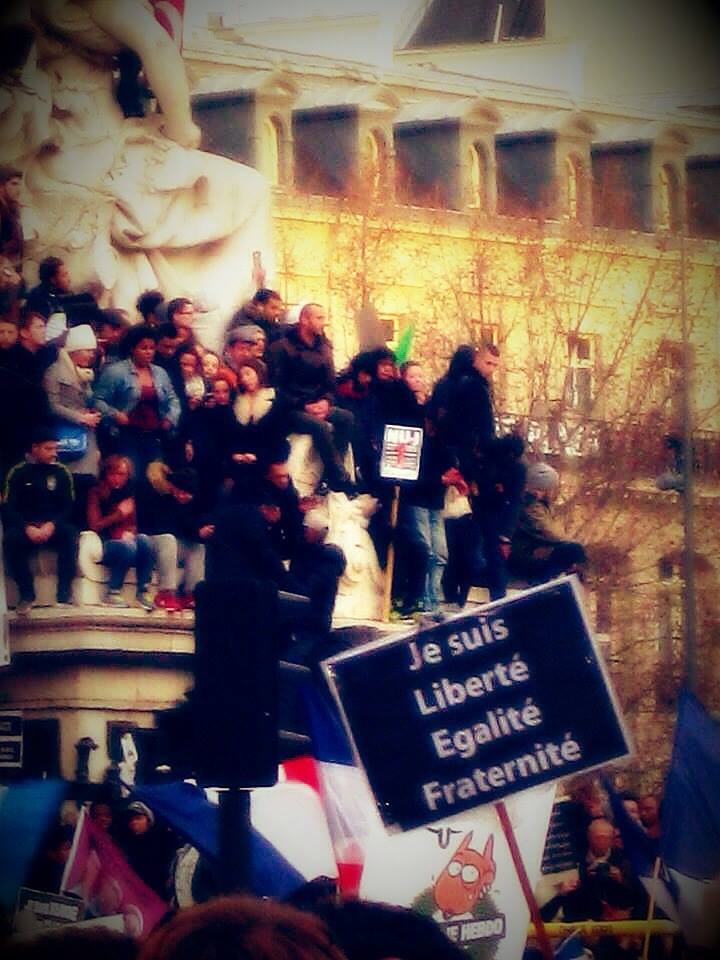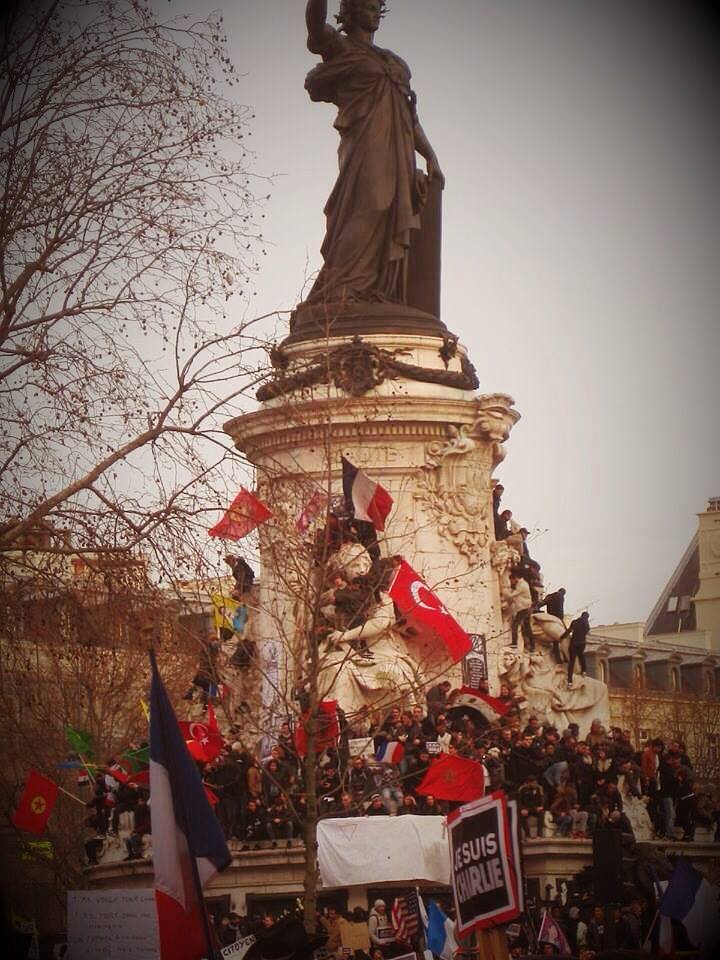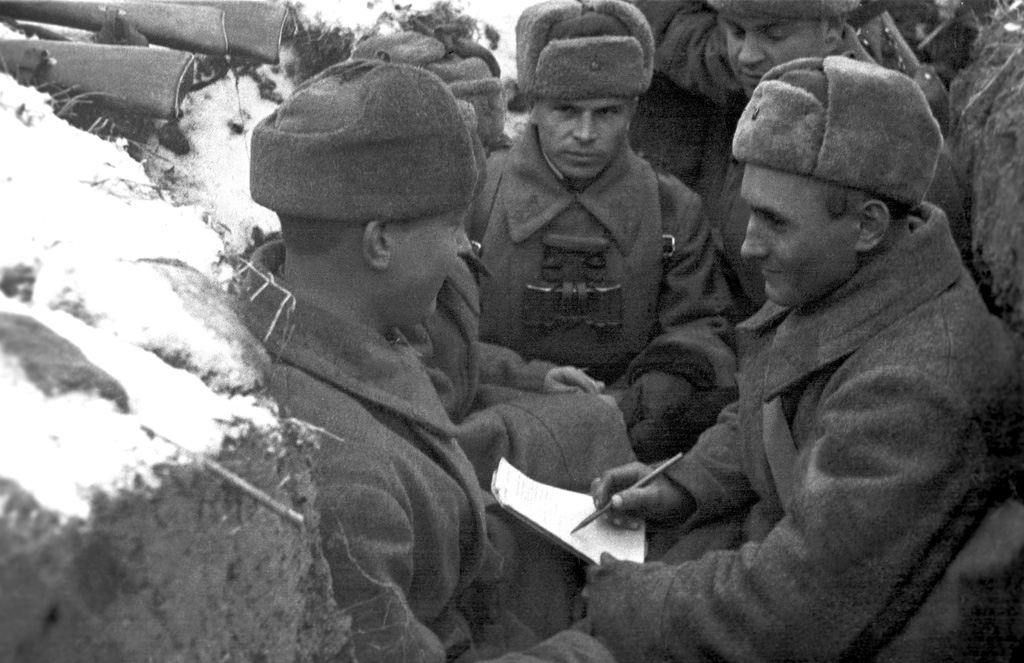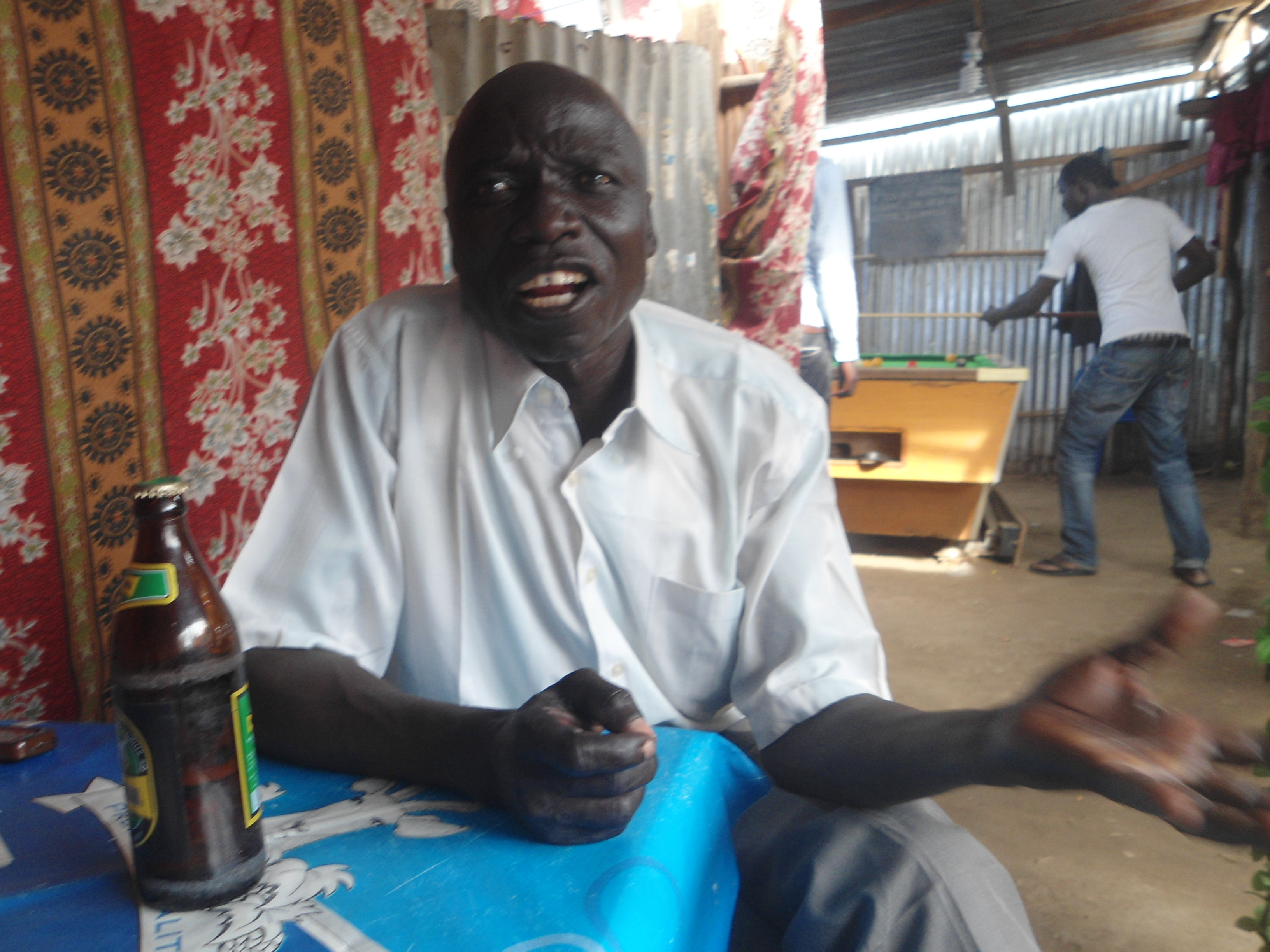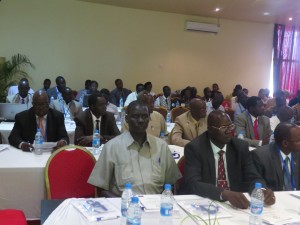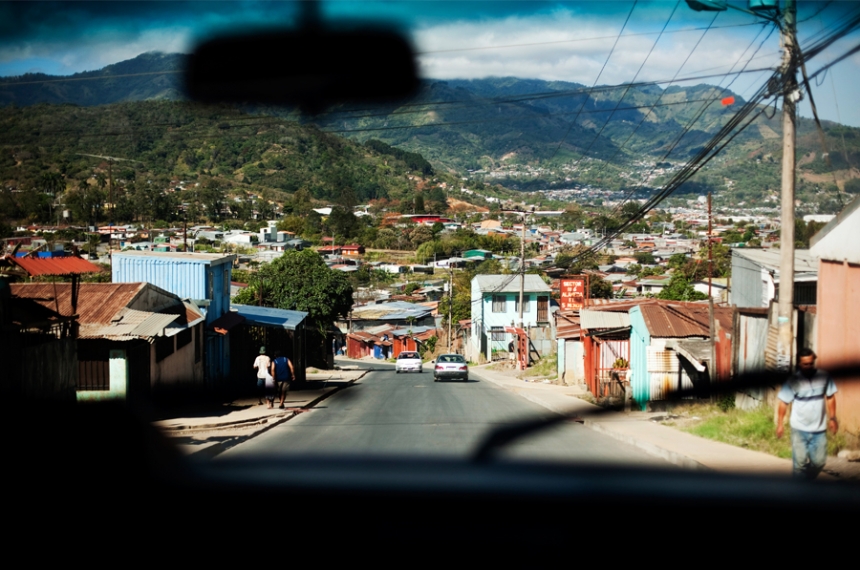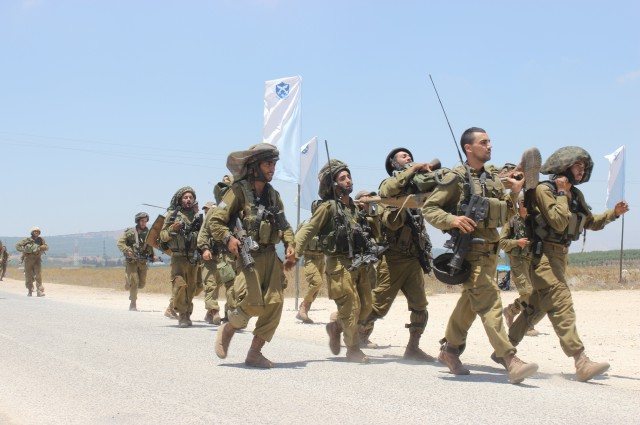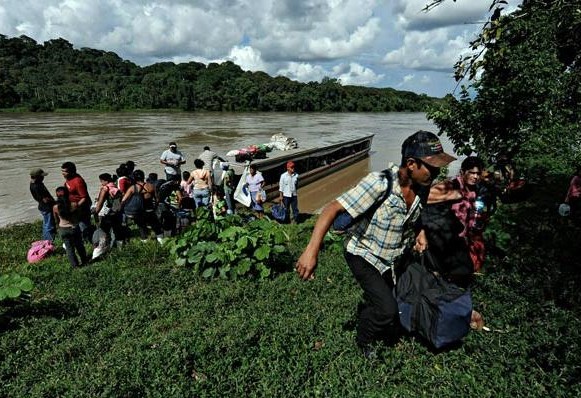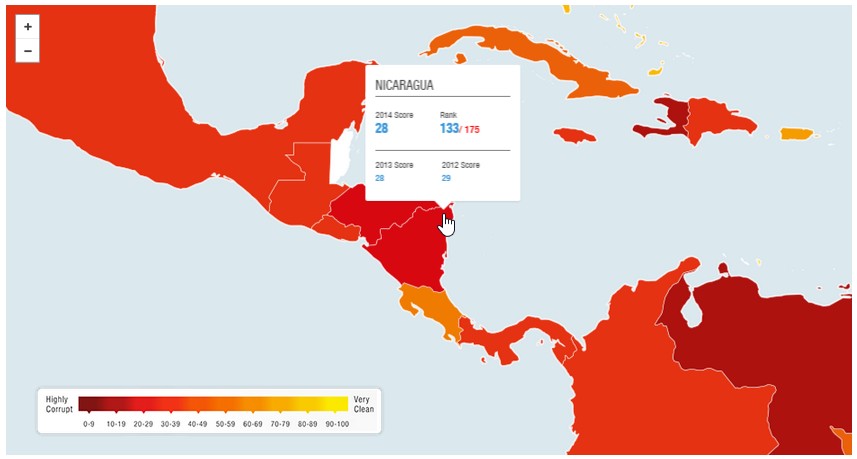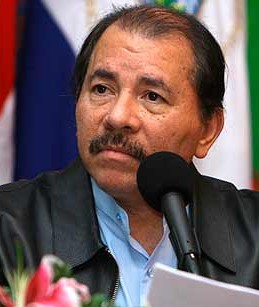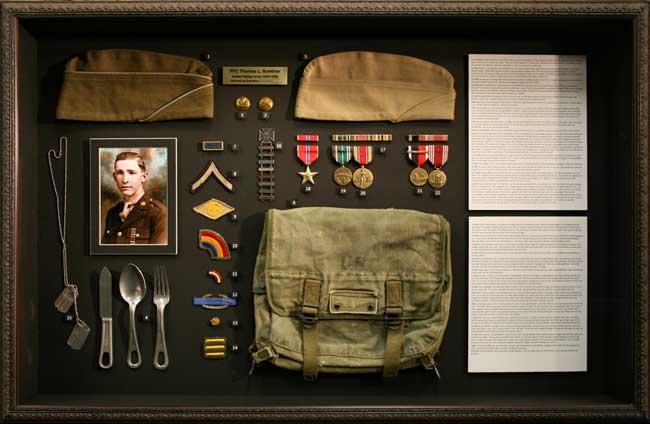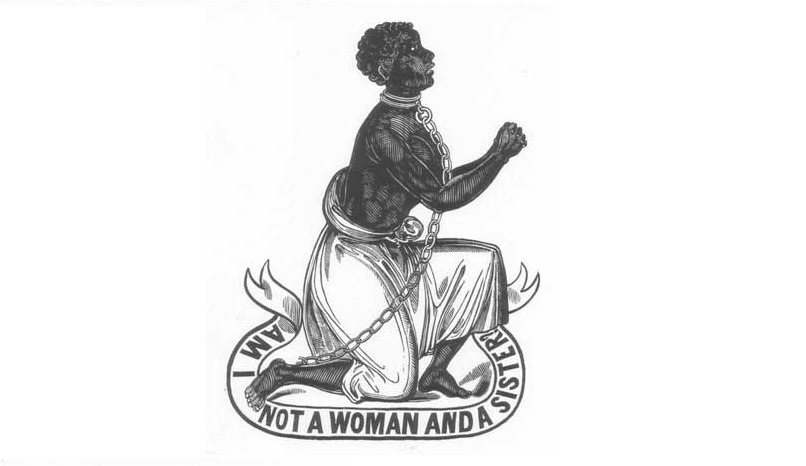In this in-depth guest post, Israeli soldier Josh Green, who has lived and worked side by side with the Israel’s Druze population, paints a picture of his experience and and familiarity with a group that accounts for a significant portion of the IDF.
The Druze have a total population of around 1-2 million. The largest community lives in Syria. Approximately 130,000 Druze live in Israel, and have served among the front lines of the Israeli army since 1956. It is estimated that over 83 percent of eligible Israeli Druze enlist in the army–above even the Jewish enlistment rate of 75 percent. Druze, who according to research by Tel Aviv University, predominently and increasingly self-identify as “Druze-Isrelis,” also increasingly are joining elite units of the IDP rather than the official Druze batallion, Herev.
The Druze population of Israel (and the world at large) is a confusing and mysterious one. This is partially intentional on their part and partly due to lack of media attention and widespread familiarity. To understand who the Israeli Druze are, first we must explore what it is to be Druze. Unfortunately, this is not as easy as it sounds. The Druze culture and religion is heavily steeped in esotericism, therefore there are few hard facts that we can confirm relating to their religion. What we do know (and what I know personally from Druze friends that I proudly serve with) is 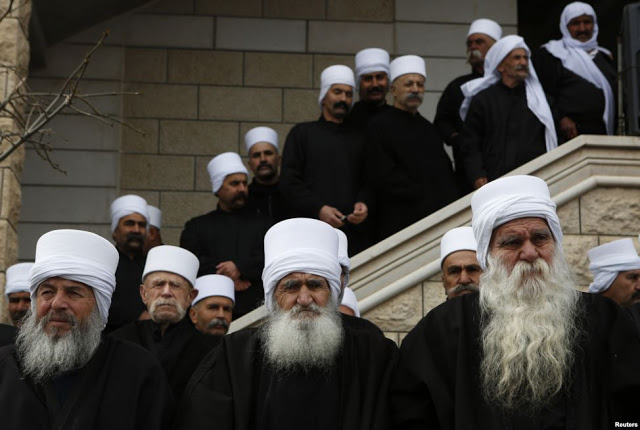 that their religion is monotheistic, loosely based on the tenets of Islam, Judaism and Christianity, and comprised of levels. They have basically the same moral values as Christianity, Judaism and Islam, with minor changes. The Druze have a strong aversion to iconography and images of god and idols are forbidden; however, they do have certain symbols, such as the five colored star representing the limits of humanity and the difference between a human soul and an animal. The five-colored star also incorporates phi, the golden ratio, as a way to express the Druze ideal of a life of moderation and temperance. The Druze believe that some wisdom from their sages and holy books is too powerful for the uninitiated and those who are not learned enough, and so the elders hide it and reveal it only to those they deem worthy. Many young Druze have no idea why they perform certain rituals, and refuse to explain why they perform others. There is no conversion in the Druze religion whatsoever, meaning that someone born Druze stays that way regardless of whether they convert to another religion, as conversion is not recognized. There is also no way to become Druze for someone not born into it.
that their religion is monotheistic, loosely based on the tenets of Islam, Judaism and Christianity, and comprised of levels. They have basically the same moral values as Christianity, Judaism and Islam, with minor changes. The Druze have a strong aversion to iconography and images of god and idols are forbidden; however, they do have certain symbols, such as the five colored star representing the limits of humanity and the difference between a human soul and an animal. The five-colored star also incorporates phi, the golden ratio, as a way to express the Druze ideal of a life of moderation and temperance. The Druze believe that some wisdom from their sages and holy books is too powerful for the uninitiated and those who are not learned enough, and so the elders hide it and reveal it only to those they deem worthy. Many young Druze have no idea why they perform certain rituals, and refuse to explain why they perform others. There is no conversion in the Druze religion whatsoever, meaning that someone born Druze stays that way regardless of whether they convert to another religion, as conversion is not recognized. There is also no way to become Druze for someone not born into it.
The Druze are very proud of their culture and heritage and take offense easily when criticized or questioned too much. Insults are taken very seriously in their culture, especially those relating to female members of the family. Probably the worst thing you can call a Druze person is Arab. 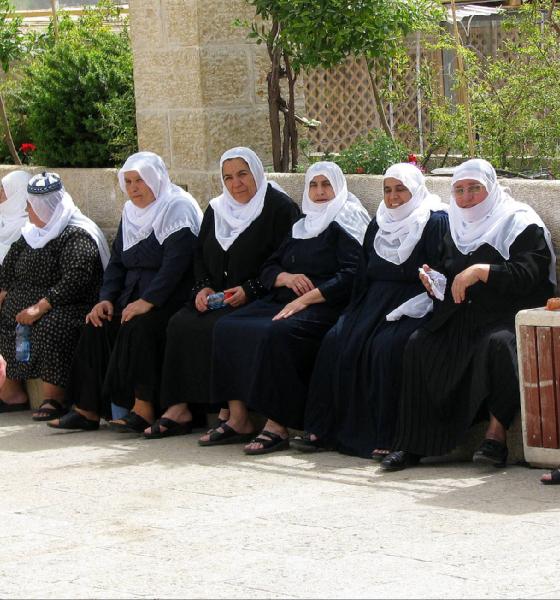 They are often mistaken for Arabs due to their appearance and language, but this is incredibly insulting to them. Insulting a Druze person is very dangerous and can be hazardous to your health and should therefore be avoided at all costs. Despite how protective many Druze are of the women in their families, the women have almost the same religious rights and and responsibilities, though they are less represented in the military than the men. The Druze are similar to the Sikhs in that they take pride in being warriors and defending their country, but it is more based on nationalism as opposed to glorification of battle. A very important part of Druze doctrine and culture relates to loyalty. They believe that loyalty to the nation comes before loyalty to other Druze (outside of the immediate family, as far as I understand it), and the Israeli Druze originally volunteered for the IDF shortly after the birth of the nation. Now they are drafted for compulsory military service just like Jews and other ethnic groups. Druze citizens of Israel are Israelis first and Druze second.
They are often mistaken for Arabs due to their appearance and language, but this is incredibly insulting to them. Insulting a Druze person is very dangerous and can be hazardous to your health and should therefore be avoided at all costs. Despite how protective many Druze are of the women in their families, the women have almost the same religious rights and and responsibilities, though they are less represented in the military than the men. The Druze are similar to the Sikhs in that they take pride in being warriors and defending their country, but it is more based on nationalism as opposed to glorification of battle. A very important part of Druze doctrine and culture relates to loyalty. They believe that loyalty to the nation comes before loyalty to other Druze (outside of the immediate family, as far as I understand it), and the Israeli Druze originally volunteered for the IDF shortly after the birth of the nation. Now they are drafted for compulsory military service just like Jews and other ethnic groups. Druze citizens of Israel are Israelis first and Druze second.
This was especially visible in the wars Israel fought with Syria, Lebanon, and Jordan, as they all have significant Druze minorities. In many of these wars there were prominent Druze on both sides, and both sides fought viciously to the end. The conflict is most pronounced in the somewhat disputed Golan Heights, where some 20,000 Druze live. Some of them are not sure whether they should be fighting as Syrians under occupation, or as Israelis. From what I am told, the dedication to country first is somehow religiously motivated, but the people I asked refused to elaborate. Regardless, those who live in the Golan and in Judea and Samaria, whose fate is uncertain, could go from being Israelis to being enemies of Israel because they live somewhere that got traded as part of some treaty or agreement. The Druze are unreservedly loyal, and many see the army as a path to advancement, which, of course, it is. In Israel, the first question any prospective employer will ask is about your army service. It serves as an indicator of a person’s talents, determination, physical ability, and leadership skills. For example, former officers are very desirable employees, as the IDF officers’ course is very competitive and many are rejected, and many of those accepted are dropped partway through. Being an officer shows leadership skills, intelligence, determination and talent. Other army positions like general combat soldiers, translators, medics, etc show prospective employers that the ex soldier can handle stressful situations, or has good command of multiple languages, or has medical knowledge and experience.
In the army, Druze are very valuable because of their language skills. Their first language is Arabic and they learn Hebrew in school, therefore they are theoretically bilingual. In practice of course, there are those who speak fluent Arabic, Hebrew and English, and those who speak mostly Arabic and can only get by in Hebrew. Despite the disparity, Druze are often elevated to high positions where their language skills will be of use 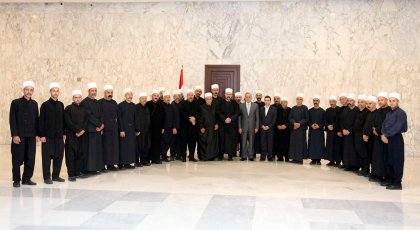 and are also often found in special forces units. This is partially due to their appearance (very close to Arabs) and language skills, allowing them to pass as Arab if needed, and partially due to their determination to succeed and to serve their country. I had a Druze officer in basic training and in my operational service, and he was an incredible officer, a perfect example of a good soldier and he took care of his men, as an officer should. Not only that, he is also around six and a half feet tall and 250 pounds, very little of it fat. Despite his height and bulk, he is unbelievably fast and silent, moving like moonlight on a waterfall, disarming a knife-wielding opponent with a quick burst of violence. He was intimidating in Krav Maga (IDF hand to hand combat) classes to say the least. One second we would square off, and then next I would be in pain, on my back, with no idea how I had arrived there. Even so, he was (and I assume he remains) a patient and effective teacher, and he was a tough commander, but was always there for his men when they needed him. When we were at checkpoints or dealing with terrorists we had arrested, he was always very rough with the Arabs, and it was almost as though he hated them. I asked him about it, and he said that not only are they hurting his country and his friends, but also have similar religious tenets and beliefs, and to see terrorists pervert Islam like that makes him angry. He said “there can be no good reason for hurting innocent people if it can be avoided at all, and targeting them on purpose is unforgiveable”. Many Druze share his point of view, and it is common knowledge in the army that Druze often hate the terrorists more than the other Israelis serving in the army do. Their unquestionable loyalty and dedication to Israel only amplifies their value and increases mainstream Israelis’ appreciation for them.
and are also often found in special forces units. This is partially due to their appearance (very close to Arabs) and language skills, allowing them to pass as Arab if needed, and partially due to their determination to succeed and to serve their country. I had a Druze officer in basic training and in my operational service, and he was an incredible officer, a perfect example of a good soldier and he took care of his men, as an officer should. Not only that, he is also around six and a half feet tall and 250 pounds, very little of it fat. Despite his height and bulk, he is unbelievably fast and silent, moving like moonlight on a waterfall, disarming a knife-wielding opponent with a quick burst of violence. He was intimidating in Krav Maga (IDF hand to hand combat) classes to say the least. One second we would square off, and then next I would be in pain, on my back, with no idea how I had arrived there. Even so, he was (and I assume he remains) a patient and effective teacher, and he was a tough commander, but was always there for his men when they needed him. When we were at checkpoints or dealing with terrorists we had arrested, he was always very rough with the Arabs, and it was almost as though he hated them. I asked him about it, and he said that not only are they hurting his country and his friends, but also have similar religious tenets and beliefs, and to see terrorists pervert Islam like that makes him angry. He said “there can be no good reason for hurting innocent people if it can be avoided at all, and targeting them on purpose is unforgiveable”. Many Druze share his point of view, and it is common knowledge in the army that Druze often hate the terrorists more than the other Israelis serving in the army do. Their unquestionable loyalty and dedication to Israel only amplifies their value and increases mainstream Israelis’ appreciation for them.
Despite all of these great qualities and the impact Druze soldiers have in the army, they are not so well known. Most Israelis know very little about the Druze outside of the basic common knowledge. Druze can often be seen in shuks (outdoor markets where haggling is the norm) and malls with stands selling their distinctive Druze laffa bread baked on an enormous inverted bowl, which is then liberally smeared with Labaneh (a type of cheese spread) and za’atar (a popular spice made with sesame seeds and other ingredients), or whatever the customer requests. The Druze at the kiosks are usually wearing traditional clothing and head coverings, as Druze custom and religion dictates modesty among men and women alike; however many younger Druze have more modern attitudes toward dress and dating. Druze can also often be seen guarding checkpoints as civilian contractors after the army, as well as guarding gates of Jewish villages and towns in the West Bank. The civilian contractors who facilitate high risk security jobs only take the best, and Druze are among the most desirable for these jobs due to their unflinching loyalty and natural suspicion (Druze have been persecuted by mainstream and radical Islam for centuries). The Druze are a perfect example of the diversity of Israel. Even though they are very different in language, appearance, religion, culture, and live in their own villages (by their own choice) somewhat separated from the rest of Israel, they are accepted and loved and considered an integral part of Israeli society. They serve as soldiers, guards, doctors, lawyers, interpreters, and scientists. It is a shame that they are not as well known or well represented, but maybe that is because there are only 130,000 or so in Israel. I am proud to serve next to the Druze soldiers of the IDF, and we as a whole are proud to have such dedicated and loyal citizens.
By Josh Green.
Josh Green is currently serving as a combat soldier in the IDF, and was active during the most recent war in Gaza.
